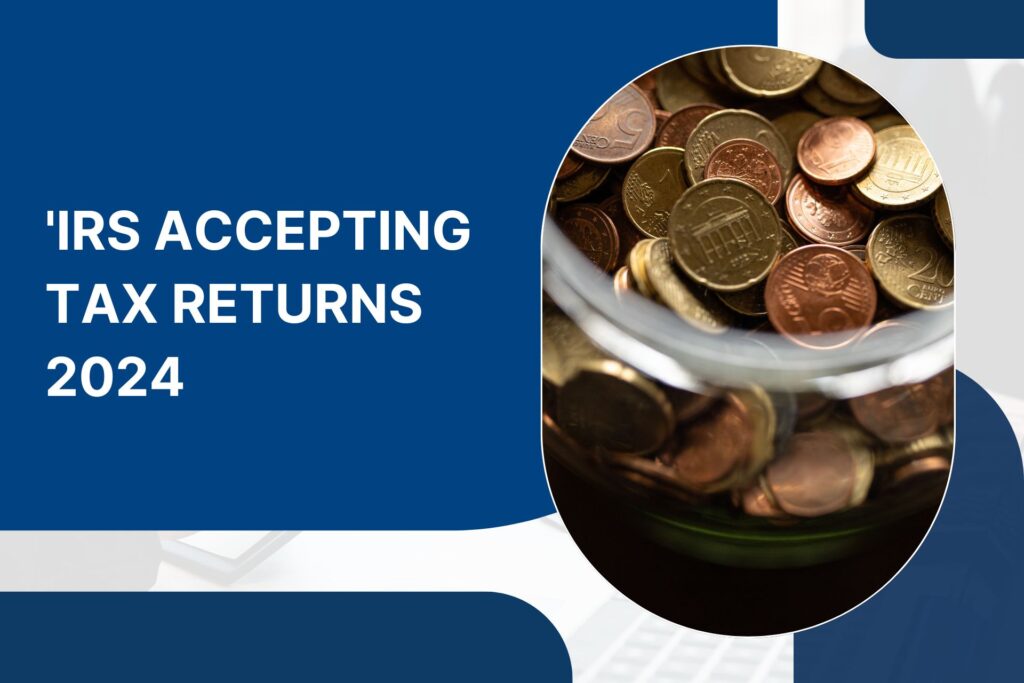As the new year begins, taxpayers across the United States eagerly await the commencement of the tax filing season. The Internal Revenue Service (IRS) plays a pivotal role in this annual ritual, and the recent announcement signaling the start of IRS tax returns 2024 has caught the attention of many. In this comprehensive guide, we will delve into the important updates provided by the IRS, focusing on key aspects such as the opening date for tax returns, changes in tax laws, and essential tips for a smooth filing process.
Opening Date for IRS tax returns 2024
One of the most crucial pieces of information released by the IRS is the official opening date for tax returns in 2024. This date marks the beginning of the filing season, allowing individuals and businesses to submit their returns and initiate the process of settling their tax obligations for the previous fiscal year.
The IRS has confirmed that it will start accepting tax returns for the 2023 tax year on Jan. 29, 2024. This date is significant for taxpayers as it sets the stage for timely and organized filing, ensuring that individuals and businesses can meet their tax obligations efficiently.
Changes in Tax Laws
Taxpayers should be aware that tax laws can undergo changes from year to year, and 2024 is no exception. Staying informed about these changes is crucial for accurate and compliant tax filing. The IRS typically provides updates on any alterations to the tax code, deductions, credits, and other relevant aspects that may impact taxpayers.
In the context of the 2024 tax season, there are several notable changes that individuals and businesses should be mindful of:
Tax Bracket Adjustments:
- The IRS may make adjustments to tax brackets to account for inflation. Taxpayers should be aware of any shifts in the income ranges for each tax bracket, as this can directly impact the amount of tax owed.
- Standard Deduction Changes: The standard deduction is another area where changes may occur. It’s essential for taxpayers to understand the updated standard deduction amounts and consider whether it makes more sense to take the standard deduction or itemize their deductions.
Tax Credits and Deductions:
- Tax credits and deductions are subject to revisions, and taxpayers should be attentive to any modifications in this regard. New credits may be introduced, while existing ones may be altered or extended.
- Healthcare-related Changes: Changes in healthcare-related taxes and penalties are common. Taxpayers should be aware of any adjustments to the Affordable Care Act (ACA) provisions and ensure compliance with healthcare-related tax obligations.
Want to Know More about 401K Plans?
Click here to Schedule a Free Consultation Today!Essential Tips for a Smooth Filing Process
Gather Documentation Early:
Start collecting all necessary documentation, such as W-2s, 1099s, and other income-related documents, well in advance. This will help prevent delays and ensure accurate reporting.
Stay Informed:
Regularly check the IRS website for updates, tax law changes, and any new guidance related to the filing season. Staying informed will empower you to make informed decisions and navigate the filing process effectively.
Consider E-Filing:
Electronic filing (e-filing) is a secure and efficient way to submit your tax return. The IRS encourages e-filing as it reduces processing times and minimizes the risk of errors commonly associated with paper filing.
Explore Tax Software Options:
Tax preparation software can simplify the filing process and help identify potential deductions and credits. Many software programs also offer e-filing options, making the entire process more convenient.
Seek Professional Assistance if Needed:
f your tax situation is complex or if you have specific questions, consider seeking the assistance of a tax professional. Tax experts can provide personalized advice and ensure that you take advantage of all available deductions and credits.
For more information visit Pension Deductions
Conclusion
As the IRS tax returns 2024, taxpayers should proactively prepare for the upcoming filing period. Understanding the opening date for tax returns, staying informed about changes in tax laws, and following essential tips for a smooth filing process are crucial steps in ensuring compliance and minimizing stress during tax season. By approaching the filing process with diligence and awareness, individuals and businesses can navigate the complexities of the tax code and fulfill their obligations efficiently.
SHARE THIS POST
Generation X and Retirement
Generation X and Retirement: Discover smart strategies to avoid costly mistakes and secure your future with effective financial planning.
Defined Benefit Plan vs 401k: Best Pension Plans for Small Business Owners
Discover the key differences between a Defined Benefit Plan vs 401k, and find the best pension plan for small business owners.
How Small Business Owners Can Save Up to $300,000 in Taxes with a Pension Plan
Learn how pension plans for small business owners can help save up to $300,000 annually in taxes with maximum deductions.
The Ultimate Guide to Using a Cash Balance Plan Calculator in 2025
Effectively use Cash Balance Plan calculator in 2025 to optimize your retirement savings and financial planning. To know more contact us!


